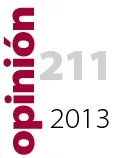A Hard Line with Roma Migrants may not Work for Hollande

Francis Ghilès
Senior Researcher Fellow, CIDOB
24 October 2013 / Opinión CIDOB, n.º 211 / E-ISSN 2014-0843
François Hollande’s approval rating has fallen to 23% which is a record of sorts since the French Fifth Republic was founded in 1959. The government is adrift as the Prime Minister Jean Marc Ayrault attempts to calm the bitter controversy among ministers which followed the expulsion from France of a Roma girl and her family earlier this month. Meanwhile the extreme right National Front (FN) comfortably won a local election in the party’s southern stronghold of Provence and recent polls suggest it would win up to 24% of the vote in next year’s European elections – more than either the Socialists, the conservative UMP or the two centrist parties. Municipal elections at the end of the winter could see the FN winning some important towns – the traditional power base of many French leaders.
Meanwhile, unemployment rises inexorably as globalisation (“mondialisation”, the French insist in calling it), the lack of serious economic reform and the consequences of the broader European crisis devour the jobs of French men and women who have switched their allegiance from the Communist or Socialist parties – first to the UMP when it was led by Nicolas Sarkozy and now to the FN. The leader of the FN for her part, Marine Le Pen, has done a good job of cleaning up her party’s image, banishing the anti-Semitism which was its hallmark for decades under her father’s leadership and fielding candidates which are well educated, in sharp contrast to the hooligan types her father was so fond off. At heart however the FN remains intolerant and anti-European. Its protectionist language hides a complete absence of policies that might create desperately needed jobs. Closing the shutters of la maison France is not a realistic option but appeal to an electorate exasperated by the endless feud between the UMP barons and a president for whom compromise looks more and more like a fuite en avant.
On Saturday, October 19, millions of French people were offered the sorry spectacle of the head of state offering the Roma girl who had just been expulsed the option of returning to study in France without the rest of her family, who were deported to Kosovo, an offer the girl rebuffed in no uncertain language. The inquiry into the deportation found that legal procedures had been though properly followed – the father had been arrested for theft, turned down job offers and threatened officials with violence. His daughter was often absent from school and the family had thrashed the flat where they lived, at the expense of the local authorities in eastern France where they resided.
What infuriated many ministers and the thousands of secondary school children who marched through the streets of Paris last week was that the Roma girl had been arrested while she was on a school trip. They vented their fury against the hard line minister of the interior, Manuel Valls, whose approval ratings are well above those of the president. Indeed Manuel Valls increasingly looks like the prime minister, if not the president in waiting. If the Socialists hope to limit the damage electors will inflict on their candidates in the two elections next year, it will be thanks to Manuel Valls, none other.
The centrist parties and the UMP are having a field day, not that they were any more successful at creating jobs when Nicolas Sarkozy was president between 2007 and 2012. Corruption and cronyism stalks the two leading parties, and French people, increasingly worried about what the future holds in store for them, are in a nasty mood, one which historically in the 1930s and 1950s led to trouble. The Socialists seem torn between a hard-line wing and those who cling to a tradition of granting asylum to all and sundry. Bleeding heart attitudes no longer appeal to most of French people: as elsewhere in Europe, the never ending economic crisis in Europe, the rise of unemployment, the cuts in social benefits and the absence of any serious thinking about increasingly complex economic and social problems is fuelling the rise of xenophobic, anti-system and ultra-nationalist parties on the right and the left across the continent.
The French attach importance to the dignity of the office of president. Last week they saw François Hollande intervene in a rather banal affair in lieu of his prime minister who seems to have lost all authority; they saw a Roma father who can hardly speak French insult the head of state for his gesture en direct from Kosovo; they saw Socialist ministers tearing into each other. The president is likely to pay a heavy political price. As for Jean Marc Ayrault his role appears increasingly to be that of a figurant. Manuel Valls is the only one on the left who emerges unscathed: he may not be liked by many of his Socialist peers but a large majority of French people approve his tough line on immigration. That should do no harm to his future ambitions, but trying to overtake the right and the FN by looking a tougher hard-liner may not prove to be the right thing to do from the left in the mid-term, not least because people tend to prefer the original than its copy.